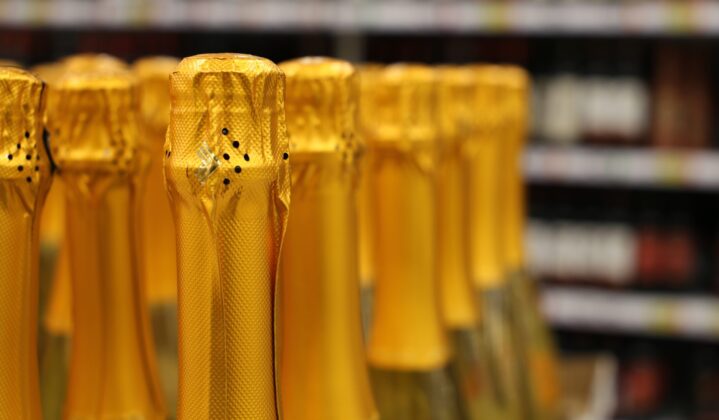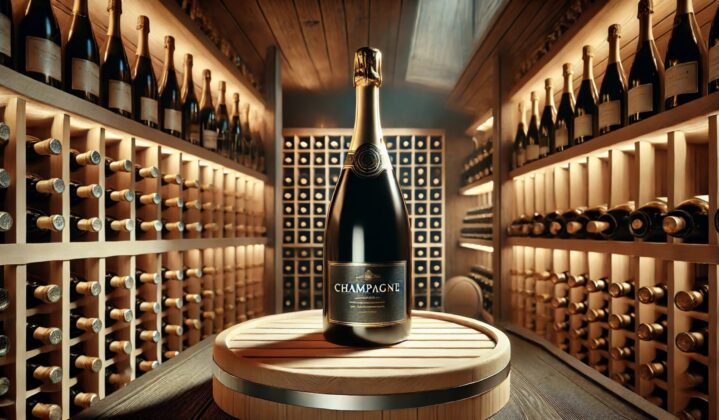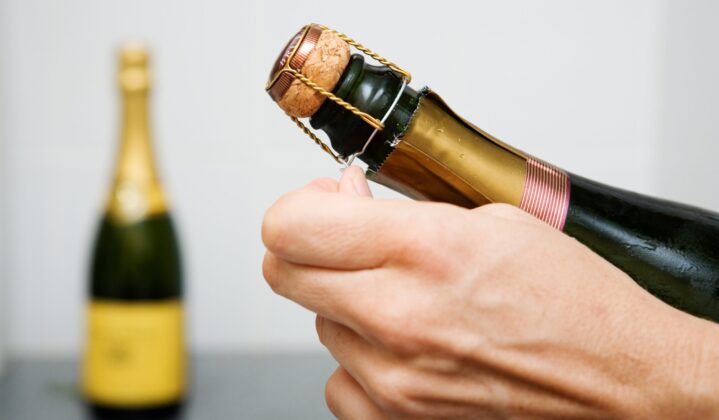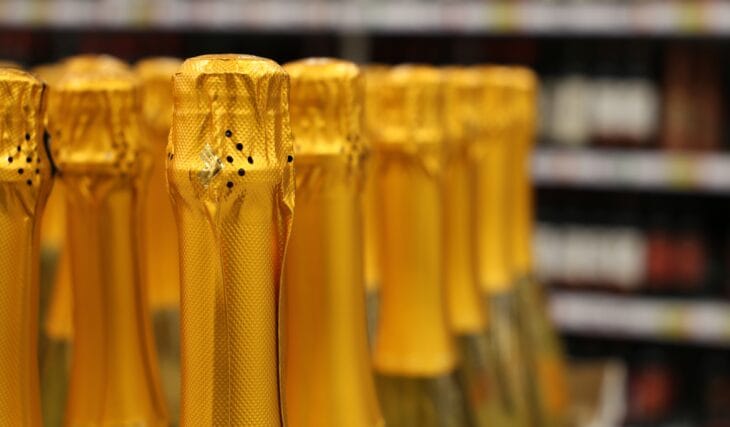Does Champagne Go Bad? Everything You Need to Know About Shelf Life and Storage
Few beverages capture the spirit of celebration quite like champagne. Whether it’s a wedding toast, a New Year’s Eve countdown, or an everyday moment worth savoring, champagne’s allure lies in its sparkle and sophistication. But like all fine beverages, champagne isn’t immune to the effects of time.
So, does champagne go bad? The answer is yes—champagne can go bad if not stored properly or kept for too long. An unopened bottle of champagne has a specific shelf life that depends on whether it’s vintage or non-vintage. Vintage champagne can age gracefully for up to 10 years or more, developing complex flavors over time, while non-vintage champagne is best enjoyed within 3 to 4 years. However, as time passes, even the finest bottles may lose their signature effervescence and develop undesirable flavors.
How long can you hold onto that cherished bottle before it loses its magic? Is an unopened bottle in your wine rack still good years later, or has it passed its prime? Here’s everything you need to know about champagne’s shelf life and storage to ensure every sip is a delight.
Champagne Longevity: How Long Does It Really Last?
Unopened Champagne
Unopened champagne doesn’t last forever, but it can still remain a delightful treat for years if stored correctly. Vintage champagne—crafted from exceptional harvests—often has an aging potential of 10 to 20 years. These bottles develop complex flavors over time, making them a prized addition to any cellar.
In contrast, non-vintage champagne, blended from multiple harvests, typically has a shorter lifespan of 3 to 5 years. It’s designed for earlier consumption, offering fresh, fruity flavors that don’t improve with prolonged aging.
Opened Champagne
Once opened, champagne begins to lose its signature effervescence. With the proper tools, like a champagne stopper, you can preserve its freshness for up to 3 days in the fridge. Beyond that, the bubbles fade, and the flavors start to flatten, signaling it’s time to say goodbye.
Does Champagne Get Better with Age?
 Not all champagne improves with age. Vintage champagne is crafted for aging and can develop richer, more nuanced flavors over time. These bottles often have the structure and complexity needed to evolve beautifully over 10 to 20 years, provided they are stored properly.
Not all champagne improves with age. Vintage champagne is crafted for aging and can develop richer, more nuanced flavors over time. These bottles often have the structure and complexity needed to evolve beautifully over 10 to 20 years, provided they are stored properly.
On the other hand, non-vintage champagne is designed to be consumed sooner, typically within 3 to 5 years. It lacks the aging potential of its vintage counterparts and will lose its freshness rather than improve with time.
For those wondering whether to let their champagne age, the answer lies in the type of champagne and how it’s stored. Always check labels or consult the producer for aging recommendations.
Key Factors That Impact Champagne Quality

Temperature Stability
Champagne is sensitive to temperature fluctuations, and inconsistent conditions can degrade its quality. Ideally, it should be stored at a constant temperature between 45°F and 65°F (7°C and 18°C). Sudden spikes or drops can cause the liquid to expand or contract, compromising the seal and freshness.
Light Exposure
Direct light, especially UV rays, is champagne’s worst enemy. It can alter its delicate flavors and accelerate spoilage. Always store bottles in a dark or dimly lit space to protect their integrity.
Storage Angle
While there’s debate about whether champagne should be stored horizontally or upright, keeping the cork moist is key for long-term storage. Laying the bottle on its side can prevent the cork from drying out and letting air in, which could ruin the champagne.
Storing Champagne Like a Pro
For Long-Term Storage
For those saving bottles for a special occasion, a wine cellar or wine fridge is your best bet. These provide the perfect balance of temperature, humidity, and light protection. Avoid storing champagne in regular refrigerators for extended periods, as the cold, dry environment can damage the cork over time.
After Opening
To keep your opened champagne lively for a few extra days, invest in a champagne stopper. These handy tools maintain carbonation by sealing the bottle tightly. Store the bottle upright in the fridge to minimize surface area exposure and preserve freshness.
Spoilage or Just Flat? Signs Champagne Has Gone Bad
Not sure if your champagne is still good? Here’s how to tell:
- Visual Changes: If the liquid appears darker than usual or contains sediment, it’s a red flag.
- Off Smells: Sour or vinegar-like aromas often signal spoilage.
- Taste Test: Flat champagne may still be drinkable but will lack the sparkle and flavor that make it special. Truly bad champagne will taste stale, with unpleasant notes.
If your bottle checks all three boxes, it’s time to let it go.
Can Flat Champagne Be Saved or Used?
 Flat champagne doesn’t have to go to waste. While it’s no longer ideal for sipping, it can add a unique twist to recipes. Use it to deglaze pans, add acidity to sauces, or even create champagne cocktails. It’s also a fantastic addition to desserts like champagne sorbet or poaching fruits.
Flat champagne doesn’t have to go to waste. While it’s no longer ideal for sipping, it can add a unique twist to recipes. Use it to deglaze pans, add acidity to sauces, or even create champagne cocktails. It’s also a fantastic addition to desserts like champagne sorbet or poaching fruits.
Flat champagne isn’t “spoiled”; it just lacks bubbles. If it smells and tastes fine, get creative and put it to good use.
Mistakes in Champagne Storage
Avoid falling for these common champagne storage mistake:
- Storing champagne upright is fine for the long term.
While short-term upright storage is acceptable, long-term storage can dry out the cork, leading to oxidation.
- Freezing champagne won’t hurt it.
Freezing can expand the liquid, risking cork damage or bottle breakage. If accidentally frozen, let it thaw gradually.
- Champagne should be stored in the fridge door.
The frequent opening and closing of the fridge door cause temperature fluctuations that can degrade champagne quality.
Tips for Keeping Your Champagne Lasting Longer
- Store Bottles in the Right Conditions: A constant, cool temperature (around 50°F or 10°C) is ideal. Avoid placing bottles near heat sources or in direct sunlight.
- Use a Proper Stopper: When opening a bottle, seal it with a champagne stopper to maintain carbonation for a few days.
- Limit Movement: Minimize vibrations and movement that can disturb the champagne’s delicate balance.
- Avoid Long-Term Refrigerator Storage: The dry air in refrigerators can harm the cork and impact champagne quality over time.
When Expiry Dates Matter (and When They Don’t)
Not all champagne bottles come with an expiry date, but those that do can provide useful guidelines. Look for a disgorgement date (when the yeast sediment was removed) to gauge freshness. While vintage champagne can age gracefully for decades, non-vintage bottles are best enjoyed within their recommended time frame to capture their intended flavor profile.
A well-stored bottle past its prime may still be safe to drink but will lack its signature sparkle and vibrancy.
Champagne is a celebration in a bottle, and with the right care, you can ensure every sip is as delightful as the first. Proper storage, attention to temperature and light, and understanding its natural lifespan will help you enjoy it at its best.
So whether it’s a vintage bottle waiting for a special day or an open bottle from last night’s toast, treat your champagne with care—it deserves it.
FAQs About Champagne Shelf Life
1. How long can champagne last unopened?
Vintage Champagne: If stored correctly, vintage champagne can last up to 20 years or more. Its higher quality and production methods make it ideal for aging, often developing complex flavors over time.
Non-Vintage Champagne: These are best consumed within 3–5 years of bottling. Unlike vintage varieties, non-vintage champagne is designed for immediate enjoyment and doesn’t improve with age.
2. How long can you keep an unopened bottle of champagne?
The lifespan of an unopened bottle depends on the type:
- Vintage Champagne: Can last 10–20 years or more, depending on storage conditions.
- Non-Vintage Champagne: Best enjoyed within 3–5 years of purchase for optimal flavor.
Always store champagne in a cool, dark place with minimal temperature fluctuations to preserve its quality.
3. Is 20-year-old champagne drinkable?
Yes, if it’s a vintage champagne stored under ideal conditions, a 20-year-old bottle can be drinkable and may offer rich, nuanced flavors. However, if it’s non-vintage, it’s unlikely to have retained its freshness and may taste flat or stale.
4. Is 10-year-old champagne still drinkable?
For vintage champagne, a 10-year-old bottle can still be in excellent condition and may even have improved in flavor. Non-vintage champagne, however, is unlikely to be drinkable after 10 years unless stored perfectly, and even then, it may have lost its intended flavor and fizz.
5. Is it safe to drink 30-year-old champagne?
If it’s a vintage champagne stored correctly, it’s possible that a 30-year-old bottle is still drinkable, although the taste will likely be very different from when it was fresh. It may have deepened in flavor, but it’s also possible that it has oxidized or gone flat. If it smells off or tastes unpleasant, it’s best to discard it. Non-vintage champagne will almost certainly be undrinkable after 30 years.
6. How do you know if champagne has gone bad?
Look for these signs:
- Appearance: If the champagne has turned darker, cloudy, or has sediment, it may be spoiled.
- Smell: A sour or vinegar-like odor is a clear indication that the champagne has gone bad.
- Taste: Champagne that has lost its bubbles and tastes flat, stale, or unpleasant should not be consumed.
If you’re unsure, perform a smell and taste test before deciding to drink it.
7. Can champagne go bad if stored in the fridge?
Short-term storage in the fridge is fine, especially if you plan to enjoy it within a few weeks. However, long-term fridge storage can dry out the cork, allowing air to seep in and degrade the champagne. For extended storage, keep the bottle in a cool, dark place instead.
8. What’s the best way to store opened champagne?
To preserve opened champagne:
- Use a champagne stopper to seal the bottle tightly.
- Store it upright in the refrigerator to minimize bubble loss.
- Consume it within 1–3 days for the best taste and fizz.
9. Where is the expiry date on champagne?
Champagne bottles typically don’t have an expiration date. Instead, you may find a disgorgement date on the label, indicating when the yeast sediment was removed during production. This date helps estimate the bottle’s freshness and aging potential. Some producers also include a “best before” suggestion for non-vintage champagne.
10. Is it safe to drink champagne past its expiration date?
Yes, as long as the champagne smells and tastes fine, it’s safe to drink. However, don’t expect it to have the same flavor or carbonation as when it was fresh. Always check for signs of spoilage before consuming older bottles.
